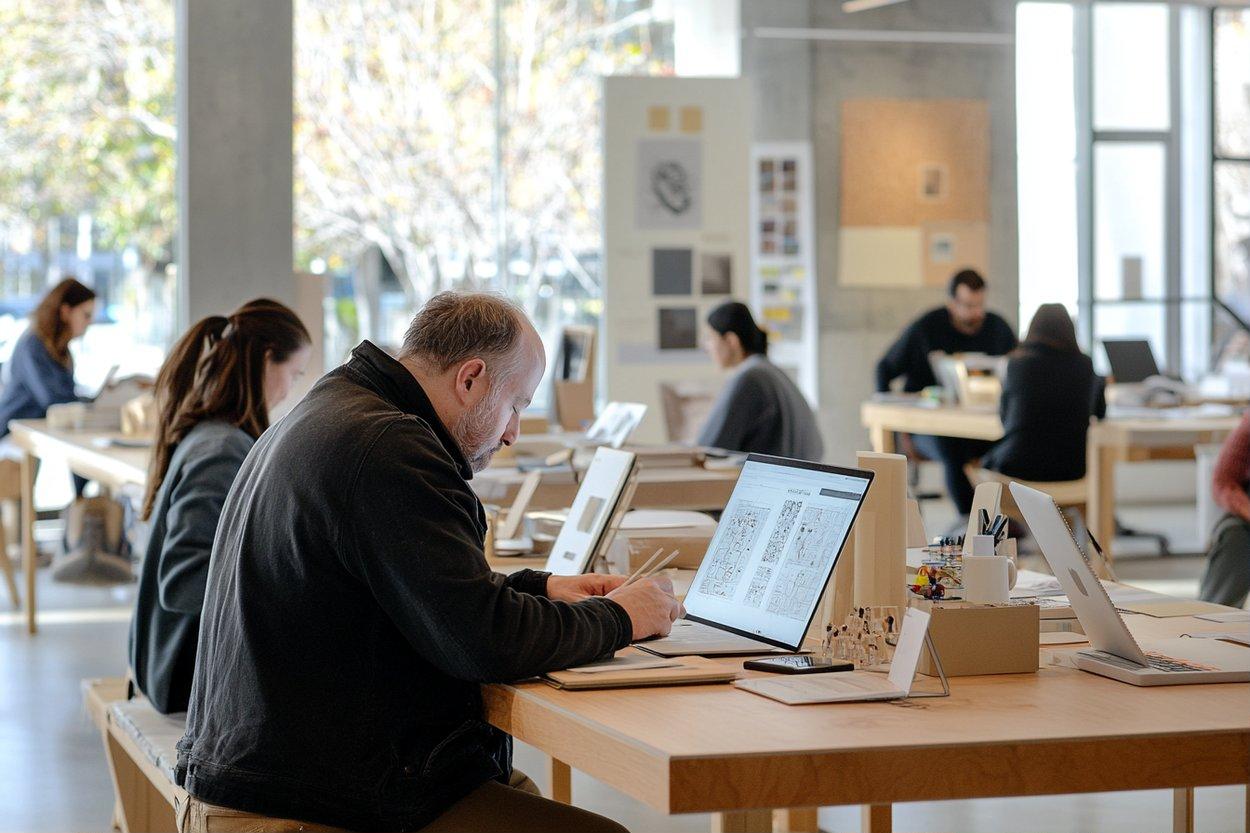Benefits of co-working spaces for freelancers and startups
The traditional office environment has undergone a significant transformation in recent years, with co-working spaces emerging as a popular alternative for independent professionals and new businesses. These shared workspaces offer a middle ground between working from home and leasing a dedicated office, providing flexibility and professional amenities without the long-term commitment. For freelancers and startups operating with limited resources and uncertain growth trajectories, co-working spaces present numerous advantages that extend beyond mere cost savings, including networking opportunities, professional infrastructure, and collaborative potential.

How co-working environments boost collaboration and productivity
Co-working spaces are designed to facilitate interaction and cooperation among members, creating an atmosphere that naturally enhances productivity. Unlike traditional offices where employees work alongside colleagues from the same organization, co-working environments bring together professionals from diverse industries and backgrounds. This diversity sparks creative exchanges and cross-pollination of ideas that might not occur in more homogeneous settings.
The layout of most co-working spaces intentionally includes common areas, shared tables, and casual meeting spots that encourage spontaneous conversations. These interactions often lead to collaborative projects, mentorship opportunities, and business partnerships. For freelancers who might otherwise work in isolation, these daily interactions provide valuable social connections that can combat feelings of loneliness while stimulating innovation.
Research suggests that professionals working in shared spaces report higher levels of productivity compared to those working from home or coffee shops. The professional atmosphere, combined with the presence of other focused individuals, creates a positive peer pressure effect that helps maintain concentration and work ethic.
Flexible office solutions: Renting a co-working space for your business
One of the most compelling advantages of co-working spaces is their flexibility, which aligns perfectly with the uncertain nature of startup development and freelance work. Unlike traditional office leases that typically require multi-year commitments, co-working memberships can often be arranged on monthly, weekly, or even daily bases.
This flexibility extends to scaling options as well. As startups grow and their team expands, they can easily upgrade their membership to accommodate additional team members without the complications of breaking leases or searching for new office space. Conversely, during leaner periods, freelancers can downgrade their membership to reduce overhead costs.
The pay-for-what-you-use model eliminates many hidden costs associated with maintaining a private office, such as utility bills, internet service, cleaning services, and office equipment maintenance. This predictability in expenses helps startups and freelancers manage their cash flow more effectively, directing resources toward core business development rather than operational overhead.
Amenities and services to look for in a modern co-working space
Modern co-working spaces have evolved beyond offering just a desk and chair, now providing comprehensive amenities that create a complete professional environment. When evaluating potential spaces, freelancers and startup founders should consider several essential features that can enhance their work experience and business operations.
High-speed internet is non-negotiable in today’s digital economy. Quality co-working spaces offer enterprise-grade connections that support video conferencing, cloud computing, and large file transfers without frustrating lags or disconnections. Additionally, printing, scanning, and copying facilities save members from investing in these rarely-used but occasionally essential pieces of equipment.
Meeting rooms equipped with presentation technology allow freelancers and startups to host client meetings in professional settings, creating a more polished impression than coffee shop meetings. Many spaces also offer phone booths or quiet rooms for private calls or concentrated work requiring minimal distractions.
Beyond these basics, premium co-working spaces may include wellness rooms, on-site cafes, shower facilities for bicycle commuters, and even nap pods. Some spaces specialize in serving particular industries, offering industry-specific equipment and services such as photography studios, podcast recording booths, or workshop areas for physical prototyping.
Networking opportunities and community benefits in shared workspaces
Perhaps the most valuable yet intangible benefit of co-working environments is their built-in community and networking potential. These spaces frequently host events ranging from informal happy hours to structured workshops and industry talks, creating natural opportunities to connect with potential clients, partners, or mentors.
For startups, this community can become an invaluable source of feedback during product development stages. Having access to diverse professionals who can test products or services and provide honest opinions can help refine offerings before full market launch. Similarly, freelancers can discover new clients or referral sources among their co-working peers.
Many co-working spaces actively foster community through dedicated community managers who make introductions between members who might benefit from knowing each other. This curated networking removes the awkwardness from professional relationship building and accelerates meaningful connection development.
Cost considerations for co-working space memberships
Co-working spaces offer various membership models to accommodate different needs and budgets. Understanding these options helps freelancers and startups select the most cost-effective solution for their specific situation.
| Membership Type | Typical Monthly Cost | What’s Included |
|---|---|---|
| Hot Desk | $100-$300 | Non-dedicated workspace, basic amenities, limited access hours |
| Dedicated Desk | $300-$600 | Reserved personal desk, storage, 24/7 access |
| Private Office | $600-$2,000+ | Enclosed team space, increased privacy, branded options |
| Virtual Membership | $50-$100 | Business address, mail handling, limited physical access |
| Day Pass | $20-$50 per day | Temporary access for occasional needs |
Prices, rates, or cost estimates mentioned in this article are based on the latest available information but may change over time. Independent research is advised before making financial decisions.
When evaluating the cost-effectiveness of co-working spaces, it’s important to consider the hidden expenses of alternatives. Working from home may seem free but often involves productivity costs, while securing a traditional office space requires significant upfront investment in furniture, equipment, and longer lease commitments. For most freelancers and early-stage startups, co-working provides an optimal balance of professional infrastructure and financial flexibility.
Professional image and credibility enhancement
Operating from a recognized co-working space rather than a home address can significantly enhance a freelancer’s or startup’s professional image. Many co-working providers offer prestigious business addresses, mail handling services, and receptionist support that create the impression of a more established operation.
This perception boost can be particularly valuable when pitching to potential clients or seeking investment. Meeting clients in a professional environment with proper meeting rooms, refreshment options, and technical support presents a polished image that inspires confidence. For startups in fundraising stages, the ability to host investor meetings in professional settings rather than crowded cafes can subtly influence perception of the business’s potential and the founder’s professionalism.
Beyond external perception, working from a dedicated professional space helps maintain clear boundaries between work and personal life, supporting better work-life balance and mental health for freelancers who might otherwise struggle with the blurring of these boundaries when working from home.




